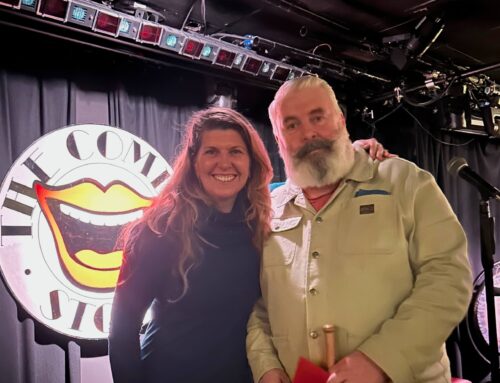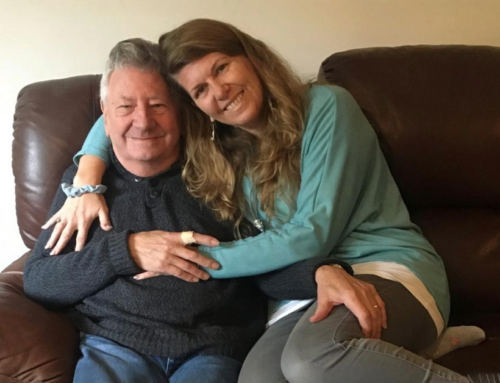Who is annoying you at the moment? Is it other drivers, people who take too long to get to the point, people who are aggressive and short-tempered? What about people who don’t do what they agreed to?
It can have quite an impact on us when we have expectations of people that are not being met, especially when our expectations are in line with a broadly accepted idea of what’s okay and what is not. It can be particularly frustrating if they are behaving in a way that you wouldn’t ever.
The urgent email
This blog was inspired by a War to Peace workshop participant, who shared a powerful story with us of how a senior executive in his organisation had sent an email to someone (let’s call him John), asking him to take urgent action to resolve a customer issue. He copied in around 50 people to the email. Two days later, John hadn’t replied and it was the talk of the organisation, with people judging John harshly for not having responded or actioned the email.
The originator sent a more vociferous email, stating in no uncertain terms what was expected from John and copied in a further 20 people. Two days later, John wrote “Sorry I haven’t replied to your email, my wife died two days ago. I’ll reply to you as soon as I am able”.
This story touched us deeply and the participant said it had led him to always asking himself the question, what part of the picture am I missing?
Photo by Jean Vargas
When else might we be missing pieces of the relationship jigsaw?
Another War to Peace participant shared how his experiences has helped him to consider what pieces of the puzzle he may not have sight of:
The terrible driver ~ Gordon’s story
Gordon let us know about one of his experiences after learning the War to Peace methodology. He was driving along the motorway on his way to work. He was about to pull out of the middle lane to overtake the car in front, when he noticed “a maniac in a black BMW” over taking and under taking the cars behind him. ‘Bloody idiot!’ he said out loud and was about to gesture to him through the window when he remembered a story he had shared at a War to Peace workshop.
Gordon told us how he had been on his way to a funeral and, not knowing where he was going, was following a friend in the car in front. A couple of times, he has nearly lost sight of the friend in front, so had made some last minute manoeuvres. “The gestures I received from other drivers suggested I had inconvenienced them!”, Gordon recalled “I was trying to get to the funeral on time, trying to keep up with the person in front of me and wish I could have somehow let the other drivers know my predicament – that I wasn’t driving like this on purpose.”
It suddenly occurred to Gordon that perhaps ‘the bloody idiot’ BMW driver had a reason for driving erratically – maybe he was en route to get to see a dying relative in hospital or had just received some terrible news. “As soon as I had that thought, I stopped being irritated by the other driver and it allowed me to drive well myself.”
The difficult work colleague ~ my own story
Everyone struggled to work with Jeff. He was bad-tempered, accusatory and a bit of a liar, often refuting that he’d agreed to action certain things when it came to giving an update. If you had a meeting with Jeff, everyone sympathised before you went in and was waiting with baited breath when you came out to hear his latest onslaught. Having tried anything I could think of to deal with him, including having a quiet word with him, challenging him directly in public and even talking to his boss, I would do all that I could to avoid him to be honest, because nothing worked!
One day, a group of us we were in a meeting with Jeff when he got increasingly fractious. He then began clutching his head and suddenly lost consciousness. Unbeknown to Jeff and to us, he was suffering from a brain tumour.
Fortunately, Jeff made a full recovery. His lasting impact on me was to realise that there’s always a reason why people behave as they do, and often even they don’t understand what that is. All I can do is be the best version of me and learning how to be at Peace with people has really helped me to achieve this.
Yes, but….
I know, what about those people who are just bad-tempered and lie and they aren’t sick and they DO just drive badly? Are we supposed to let them off the hook and make excuses for them?
It’s a common misunderstanding that being at Peace means being soft and letting people off the hook, and being at War means being tough and making the difficult decisions. This simply isn’t the case, because how we are being is far deeper than behaviour and almost anything we do can be done from being at War or at Peace with someone.
In fact, War to Peace participants regularly report making tough decisions (such as firing someone, ending a relationship, making people redundant) have become much easier for them since they experienced the War to Peace methodology. And they have noticed that is far easier for the people who have been affected by the decisions to handle the outcome.
What helps many people is to understand that being at Peace is about having greater clarity of thought, more resourcefulness and therefore more choices. In this place of being at Peace, we are being ourselves – the best version of us becomes readily available, whether that is firm and fair, kind and compassionate or fun and easy-going.
Being at War on the other hand limits our ability to think clearly or see multiple options and solutions, and leaves us feeling disempowered. It’s like banging our head against a brick wall because it feels as though we’ve tried everything – and nothing is working.
Over to you
Spend some time this week considering whether you would rather:
A) Know you are ‘right’ about someone – the other driver IS an idiot, that person DOESN’T do a proper job, s/he HAS let me down. You feel stressed, hurt and /or angry (albeit righteously), and spend your energy thinking about how you have been wronged or on how to fix them; or
B) Know that you don’t have all the pieces of the jigsaw about this person’s life and circumstances. Therefore you get to feel calm, clear-headed and to be the person you want to be, with energy to focus on all the things that are important to you, your colleagues and your loved ones.
Could you, or someone you know, benefit from War to Peace®?
If you, or someone you know, could benefit from learning more about how to remain effective and untriggered at work and at home, consider War to Peace®. These workshops can be held in your workplace and away from it. Spaces for our next public course that anyone may attend can be booked here:







Leave A Comment